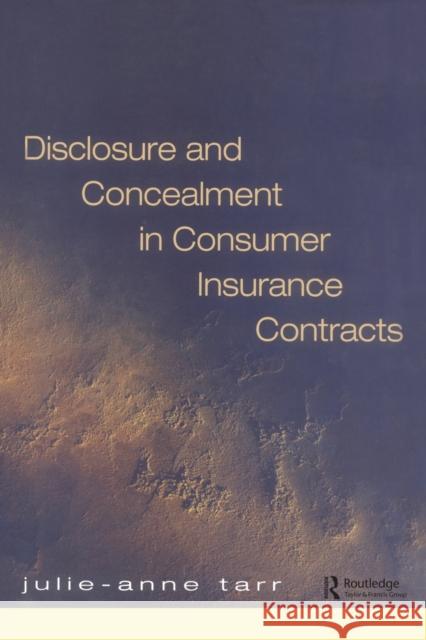Disclosure and Concealment in Consumer Insurance Contracts » książka
Disclosure and Concealment in Consumer Insurance Contracts
ISBN-13: 9781859417126 / Angielski / Miękka / 2002 / 270 str.
There is significant asymmetry of information and knowledge between insurers and insureds in relation to consumer insurance contracts involving home buildings, home contents, motor vehicle cover, travel, personal accident and consumer credit. In some respects, the insured is in a superior position - he or she is aware of the particular circumstances surrounding the subject matter of the insurance contract and any specific risks to which the property is exposed or where liability may be incurred. Conversely, the insurer is in an advantageous position as regards the scope and content of the insurance cover being sought. The insured is aware of the primary features of the transaction (such as the type of cover, the quantum of cover and the premium payable) but is unlikely to have a clear (or any) understanding of subordinate terms such as average clauses, subrogation provisions and the myriad of exclusions, excesses and limitations upon liability.
This book provides an in-depth examination of the theoretical,legal, social and economic foundations to disclosure and concealment of information in relation to the formation of consumer insurance contracts. A comparative treatment of this issue is undertaken with particular attention given to the judicial and legislative approaches adopted in the United Kingdom, the United States of America, Australia and New Zealand.
It will be relevant to those researching and studying insurance law, all legal practitioners involved with the formation of consumer insurance contracts and non-legal practitioners working within the field of insurance.











